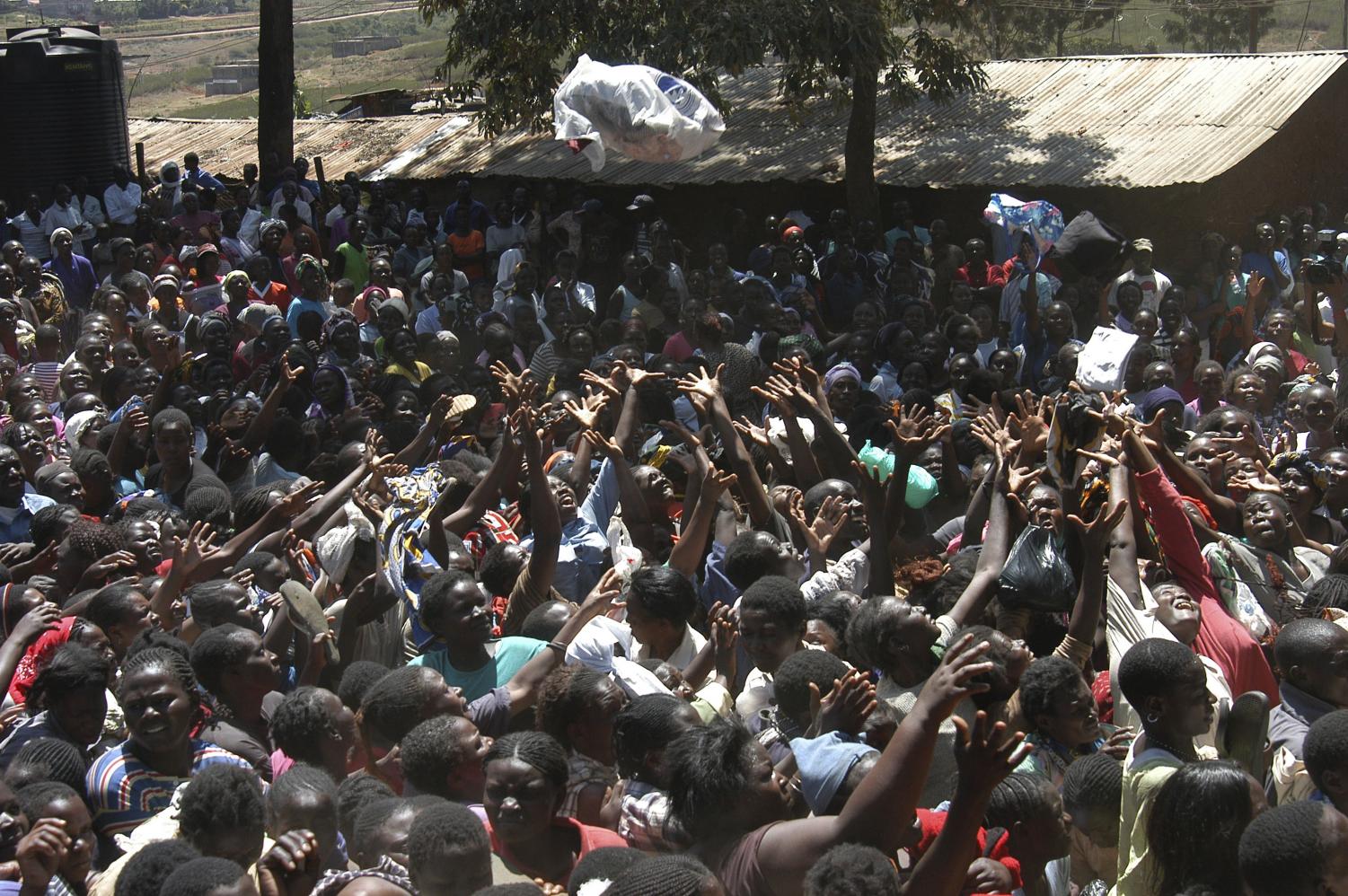Kenya’s opposition leader rejected a presidential invitation for talks, saying Tuesday that the proposal would undermine international attempts to end an election standoff that has left more than 500 people dead. The president named his Cabinet, undeterred by accusations he stole the vote.
The developments could threaten calm that had been restored in recent days. Riot police fired over the heads of young people in the western town of Kisumu who set up a road block of burning ties late Tuesday, according to a resident there. In Nairobi’s oldest slum, Mathare, a resident said that an hour after President Mwai Kibaki announced his Cabinet, he heard his first gunshots in three days.
Political violence in some areas had deteriorated into clashes between other tribes and Kibaki’s Kikuyu, long dominant in politics and the economy here.
Salim Lone, a spokesman for opposition leader Raila Odinga’s party, said the party repeated its call for no demonstrations, saying it did not want to undermine African Union-mediated talks expected to begin Wednesday.
Lone had said shortly after the invitation to meet Friday was extended Monday that Odinga would attend if the talks were part of international mediation efforts. But Tuesday, Odinga said what would have been the first meeting between the two since the violence erupted over the Dec. 27 vote was ”public relations gimmickry,” and that Kibaki was ”trying to deflect attention from and undermine” international mediation.
Diplomatic efforts continued. The chairman of the African Union, Ghanaian President John Kufuor, arrived on a mediation mission and U.S. presidential candidate Barack Obama –whose late father was Kenyan– calling Odinga. U.S. President George W. Bush and British Prime Minister Gordon Brown offered support to the AU effort.
One proposed solution has been for Kibaki and Odinga to share power, but Kibaki announced half his Cabinet on Tuesday, including a vice president, and gave no portfolios to Odinga’s party. Most posts went to members of Kibaki’s party, though Kalonzo Musyoka, a minor presidential candidate who won just 9 percent of votes, was named vice president and another member of Kalonzo’s party was named information minister.
Odinga’s party won 95 parliament seats and Kibaki’s party 43 in legislative elections held the same day as the presidential elections, meaning it will be difficult for Kibaki to govern without making some overture to Odinga.
Lone said, ”We think that the announcement of the Cabinet was a slap in the face for all the effort that Kenyans and the international community is making to avoid the crisis.”
Martha Karua, reappointed as justice minister Tuesday, said the opposition should take its complaints to the courts.
”I am certain they have no evidence upon which a credible court can nullify a Kibaki win,” she said.
Meanwhile, Cornelius Korir, the Catholic bishop of one of the towns worst hit by the ethnic clashes sparked by the political crisis, charged Tuesday that attacks on Kikuyu appeared well planned and organized.
Bishop Cornelius Korir spoke in western Eldoret, scene of a fiery massacre of Kikuyus. Eldoret and surrounding areas have seen an exodus of Kikuyus since.
”The way the attacks were managed seems to me very organized,” Korir said as U.S. envoy Jendayi Frazer toured the region Tuesday. ”No, it did not seem spontaneous to me … It seems it was well planned.”
He did not elaborate.
Kibaki’s government also has charged the attacks were orchestrated, and both sides have traded accusations that the violence amounted to genocide or ethnic cleansing.
On Monday, Frazer rejected that, saying ”We would not agree that what has happened _ even the worst of what has happened _ has been a genocide.”
Earlier this week, Frazer had won an offer from Kibaki to form a unity government, and Odinga then said he was willing to drop demands that Kibaki resign and was willing to discuss sharing power.
Obama spokesman Robert Gibbs confirmed that the senator spoke to Odinga Monday afternoon for about five minutes before going into a rally in New Hampshire.
Odinga said on British Broadcasting Corp. radio that Obama’s father was his maternal uncle, and that Obama called him twice ”in the midst of his campaigning … to express his concern and to say that he is also going to call President Kibaki so that Kibaki agrees to find a negotiated, satisfactory solution to this problem.”
Kenya is an ally in the United States’ war on terrorism and has turned over dozens of people to the U.S. and Ethiopia as suspected terrorists. The country allows American forces to operate from Kenyan bases and conducts joint exercises with U.S. troops in the region.
The U.S. also is a major donor to Kenya, long seen as a stable democracy in a region that includes war-ravaged Somalia and Sudan. Aid amounts to roughly US$1 billion a year, said U.S. Embassy spokesman T.J. Dowling







